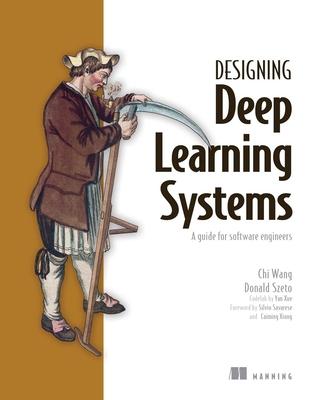- Transfer your software development skills to deep learning systems
- Recognize and solve common engineering challenges for deep learning systems
- Understand the deep learning development cycle
- Automate training for models in TensorFlow and PyTorch
- Optimize dataset management, training, model serving and hyperparameter tuning
- Pick the right open-source project for your platform
Deep learning systems are the components and infrastructure essential to supporting a deep learning model in a production environment. Written especially for software engineers with minimal knowledge of deep learning's design requirements, Designing Deep Learning Systems is full of hands-on examples that will help you transfer your software development skills to creating these deep learning platforms. You'll learn how to build automated and scalable services for core tasks like dataset management, model training/serving, and hyperparameter tuning. This book is the perfect way to step into an exciting--and lucrative--career as a deep learning engineer. Purchase of the print book includes a free eBook in PDF, Kindle, and ePub formats from Manning Publications. About the technology To be practically usable, a deep learning model must be built into a software platform. As a software engineer, you need a deep understanding of deep learning to create such a system. Th is book gives you that depth. About the book Designing Deep Learning Systems: A software engineer's guide teaches you everything you need to design and implement a production-ready deep learning platform. First, it presents the big picture of a deep learning system from the developer's perspective, including its major components and how they are connected. Then, it carefully guides you through the engineering methods you'll need to build your own maintainable, efficient, and scalable deep learning platforms. What's inside
- The deep learning development cycle
- Automate training in TensorFlow and PyTorch
- Dataset management, model serving, and hyperparameter tuning
- A hands-on deep learning lab
About the reader For software developers and engineering-minded data scientists. Examples in Java and Python. About the author Chi Wang is a principal software developer in the Salesforce Einstein group. Donald Szeto was the co-founder and CTO of PredictionIO. Table of Contents 1 An introduction to deep learning systems
2 Dataset management service
3 Model training service
4 Distributed training
5 Hyperparameter optimization service
6 Model serving design
7 Model serving in practice
8 Metadata and artifact store
9 Workflow orchestration
10 Path to production
